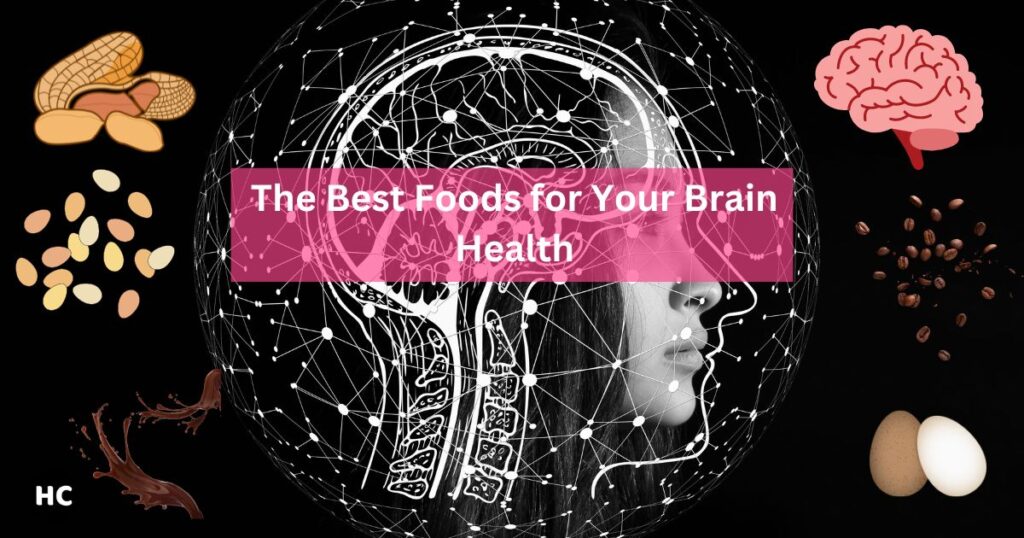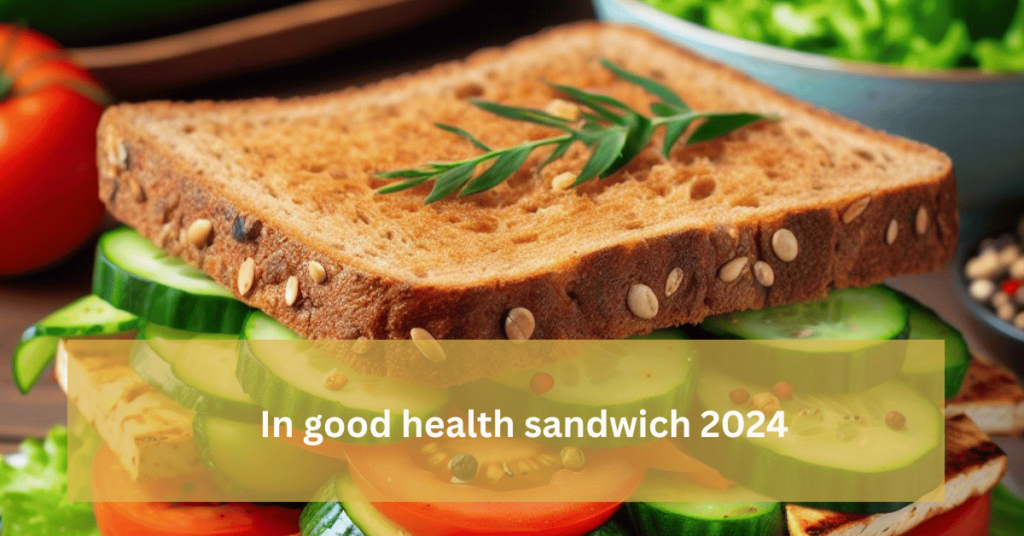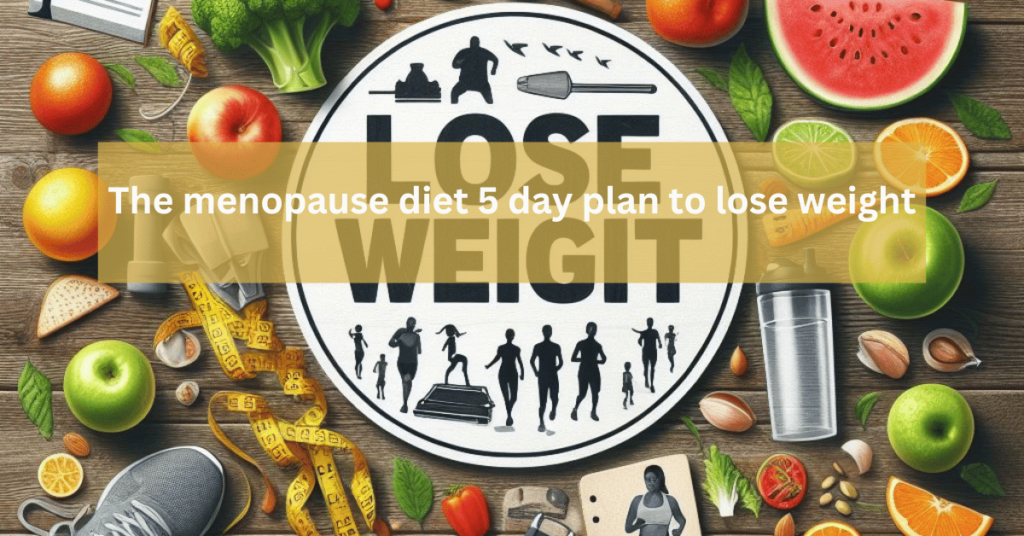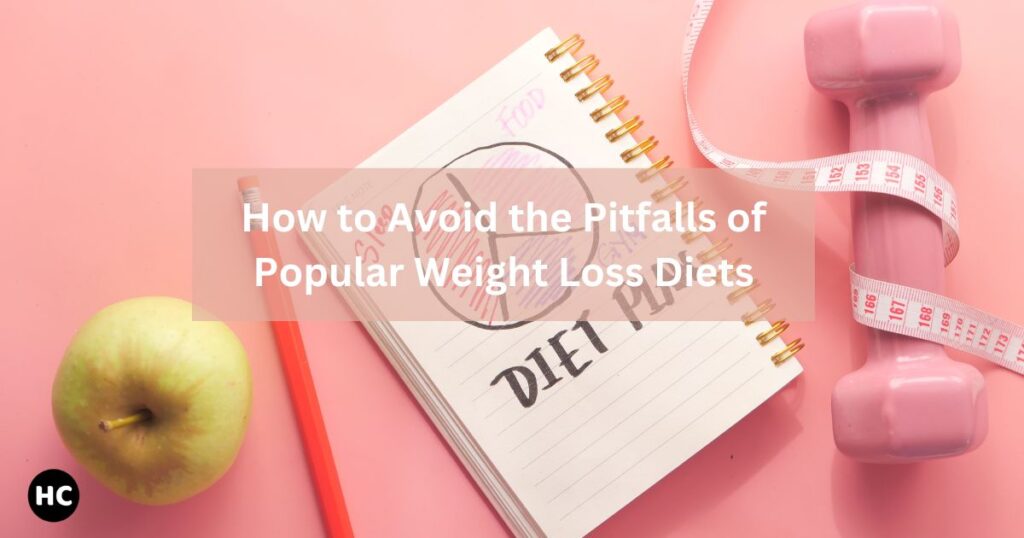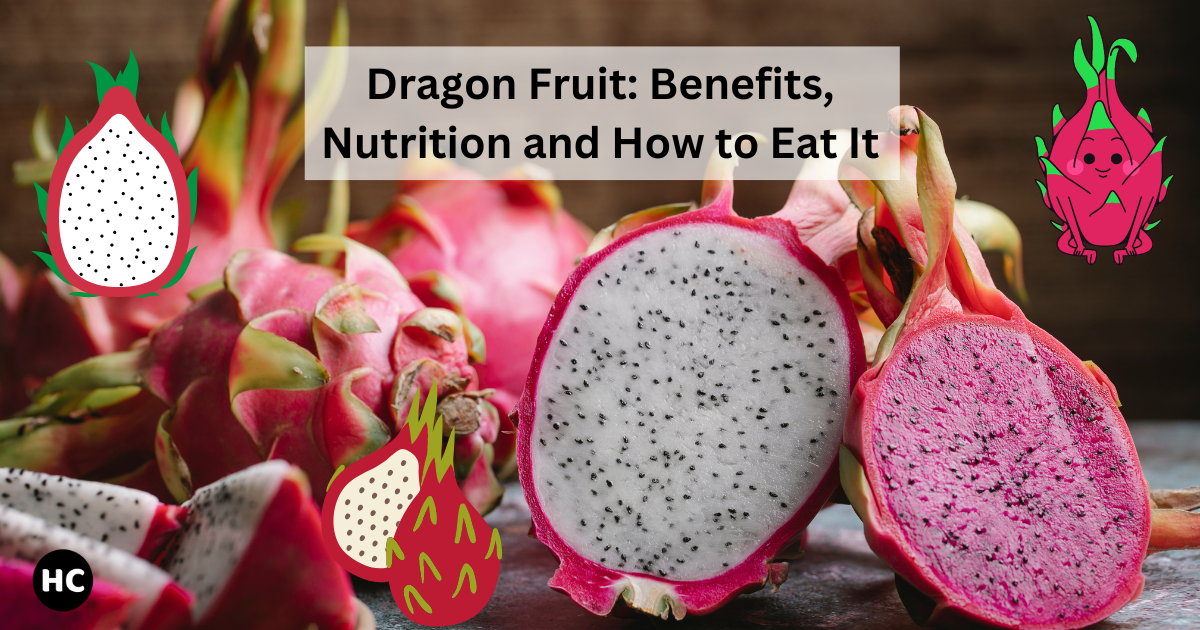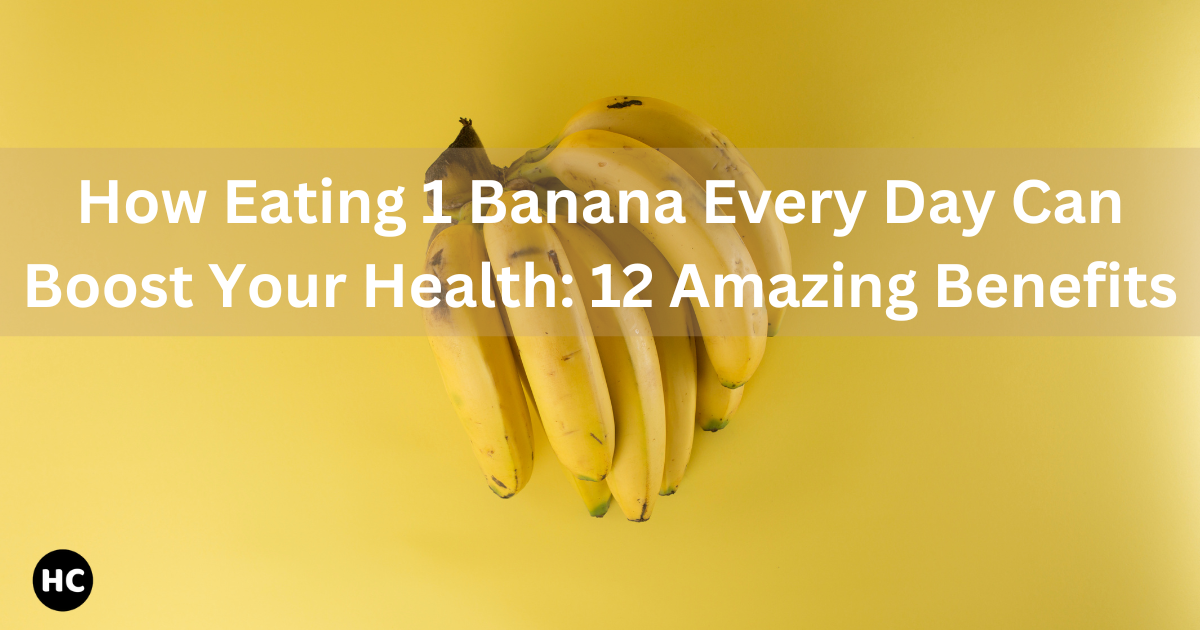Are you noticing you’re having trouble remembering things? Or maybe you experience brain fog every once in a while? Nobody wants to face the inevitable reality of growing old, but it’s something we will ultimately face. As we journey through the sands of time, safeguarding the well-being of our brains becomes crucial. Fortunately, you can still hold a fair amount of control over your brain health simply by adopting a healthy lifestyle, particularly a healthy diet. And you’re in luck! In this article, we got some brain health boosting foods that you have to start including in your daily diet. No, really! These foods can help promote brain health and keep your mind sharp.
Coffee for the Brain: How It Can Boost Your Brain Power
Coffee sounds like a dream come true, wouldn’t it be great if somehow drinking coffee could boost our brain power? After all, so many of us can’t imagine starting the day without a cup of coffee. If you are one of the coffee lovers, you will be glad to know it’s good for your brain. That’s not just us saying this, there’s enough scientific evidence to support this claim. Coffee contains caffeine and antioxidants, both of which have been associated with potential benefits for brain health and protection.
How does caffeine affect your brain?
Caffeine is the key ingredient in coffee. It helps you stay alert by blocking a chemical in your brain called adenosine, which causes drowsiness. So if you are someone who finds it difficult to work actively late at night, try having a cup of coffee.
If you have been feeling a bit down lately, drinking coffee in moderation might help lift your spirits. You see, the caffeine in coffee can actually boost your mood by increasing dopamine levels in your brain. And let me tell you, dopamine is like your brain’s own feel-good hormone that can significantly affect how you feel.
What does the research say about coffee and brain health?
Numerous studies have investigated the effects of caffeine on your brain and have shown positive results. During a cognition test, participants who consumed caffeine showed a noticeable improvement in short-term alertness while undertaking the test versus those who didn’t drink caffeine. Research has also shown that those who drink coffee regularly had a lower risk of developing diseases such as Alzheimer’s or Parkinson’s. The most reduction in risk was seen among those who had three to four cups of coffee daily. It’s important to note that this association does not imply causation and individual responses to coffee can vary.
How much coffee should you drink?
So before you go crazy over coffee, remember to consume it in moderation. Too much caffeine can cause side effects such as insomnia, anxiety, irritability, and dehydration. The recommended daily intake of caffeine for adults is up to 400 mg, which is equivalent to about four cups of brewed coffee. However, this amount may vary depending on your age, weight, health conditions, and personal preferences. If you are pregnant, breastfeeding, or have a medical condition that affects your heart or blood pressure, you should consult your doctor before drinking coffee. Coffee can be a great way to boost your brain power and enjoy its benefits. But like everything else in life, balance is key. So drink responsibly and enjoy your cup of joe!
Turmeric: How It Can Benefit Your Brain Health
Have you ever tried a turmeric latte or golden milk? Well, you may want to give it a try after reading this article. Although already an integral part of South Asian cuisines, this yellow spice has recently gained much attention in the wellness community. This is because turmeric contains an important compound called curcumin, which has been found to have various potential health benefits.
How does curcumin affect your brain?
Curcumin is the main active ingredient in turmeric. It has anti-inflammatory, antioxidant, and neuroprotective properties that can benefit your brain health in many ways. This compound can potentially cross the blood-brain barrier and affect brain cells directly, instead of solely remaining in the bloodstream.
Some of the potential benefits of curcumin for your brain are:
- Improving memory and cognition: Curcumin can help improve the memory of those with Alzheimer’s and has shown potential for reducing amyloid plaques in the brain, which are associated with the condition. Curcumin can also enhance cognitive function and attention in healthy adults.
- Boosting mood and mental well-being: Curcumin can help improve your mood and ease depression. It does this by boosting serotonin and dopamine in your brain, which are neurotransmitters that regulate your emotions. Although more research is needed, present ones have shown promising results in curcumin helping treat depression when used alongside standard treatments.
- Supporting brain growth and repair: Curcumin can positively affect a protein necessary for brain health and function. This protein is called brain-derived neurotrophic factor (BDNF), which influences our thinking, learning, memory, and behavior. BDNF also helps the growth and survival of new brain cells and connections. Findings have suggested that curcumin may be helpful for neurological disorders that are linked to low BDNF levels, such as depression, anxiety, Parkinson’s, schizophrenia, and certain types of dementia.
How much turmeric or curcumin should you consume?
Despite containing curcumin, turmeric doesn’t possess sufficient quantities. This is because turmeric is used sparingly in dishes and only has about 6 to 8 percent of curcumin. So if you want to spice up your daily meals, make sure to add turmeric to your dishes. You can also try drinking turmeric tea or golden milk, which are beverages made with turmeric, milk, honey, and other spices. However, if you want to get the full benefits of curcumin for your brain health, you may need to consider taking curcumin supplements. These supplements usually contain higher doses of curcumin and may also have other ingredients that enhance its absorption and bioavailability.
Before taking any supplements, make sure to consult your doctor first. Curcumin may interact with some medications or cause side effects in some people. The recommended daily intake of curcumin for adults is up to 500 mg, but this may vary depending on your age, weight, health conditions, and personal preferences. Turmeric is a wonderful spice that can add flavor and color to your dishes. But more than that, it can also benefit your brain health thanks to its active compound curcumin. So why not give it a try and see how it can improve your mood, memory, and cognition?
Pumpkin Seeds: How They Can Boost Your Brain Health
Have you ever tried pumpkin seeds? This health-boosting food is packed with antioxidants, which help combat free radicals in your body. Too many free radicals in the body can damage your cells, including your brain cells, and lead to chronic diseases. Pumpkin seeds also contain other essential nutrients that help your brain health, such as zinc, magnesium, copper, and iron. These minerals play important roles in various brain functions and processes.
How do pumpkin seeds benefit your brain?
Some of the benefits of pumpkin seeds for your brain are:
- Improving memory and cognition: Pumpkin seeds contain zinc, which is a vital mineral for your brain health. Being zinc deficient increases the chances of developing brain-related diseases such as Alzheimer’s and Parkinson’s. Zinc also helps regulate your mood and prevent depression. Eating pumpkin seeds regularly can help you avoid zinc deficiency and improve your memory and cognition.
- Reducing stress and anxiety: Pumpkin seeds contain magnesium, which is another essential mineral for your brain health. Magnesium helps regulate the activity of nerve cells and neurotransmitters in your brain. It also helps relax your muscles and blood vessels, which can lower your blood pressure and stress levels. Those who don’t get enough magnesium are known to develop conditions like epilepsy and migraines. They may also experience depression, anxiety, and insomnia. Eating pumpkin seeds can provide you with enough magnesium to reduce stress and anxiety and improve your sleep quality.
- Protecting your brain from damage: Pumpkin seeds contain copper, which is a trace mineral that your brain uses to control nerve signals. Copper also helps produce antioxidants that protect your brain from oxidative stress and inflammation. Low copper levels can increase your risk of developing Alzheimer’s and other neurodegenerative diseases. Eating pumpkin seeds can help you maintain adequate copper levels and protect your brain from damage.
- Enhancing your brain function: Pumpkin seeds contain iron, which is a crucial mineral for your brain function. Iron helps transport oxygen to your brain cells, which is necessary for their energy production and metabolism. Iron also helps synthesize neurotransmitters and hormones that regulate your mood, cognition, and behavior. If you don’t get enough iron every day, you will experience brain fog more often. Your brain would also not function at its most optimal condition. Eating pumpkin seeds can help you prevent iron deficiency and enhance your brain function.
How to include pumpkin seeds in your diet?
The best part is you can include pumpkin seeds easily in your diet. Pumpkin seed oil or butter has a nutty flavor that can complement many dishes, such as salads, soups, sandwiches, or baked goods. Pumpkin seeds are a delicious and nutritious food that can benefit your brain health in many ways. By eating them regularly, you can improve your memory, cognition, mood, and mental well-being. So why not give them a try and see how they can boost your brain power?
Nuts: How They Can Benefit Your Brain Health
Nuts are usually on most lists regarding healthy eating because they are instrumental in keeping your heart healthy. Having a healthy heart is linked to a healthy brain. But why are nuts so good for you? Well, they contain many healthy nutrients that can help your brain health, such as healthy fats, antioxidants, and vitamin E. All of these help in protecting your brain from harm, slowing down mental decline, and improving your memory and cognition.
How do nuts protect your brain from harm?
Nuts are rich in antioxidants, which are substances that help combat free radicals in your body. Free radicals are unstable molecules that can damage your cells, including your brain cells, and lead to chronic diseases. Antioxidants can help neutralize free radicals and prevent them from harming your brain. They can also reduce inflammation and oxidative stress in your brain, which are associated with aging and neurodegenerative diseases. Nuts also contain vitamin E, which is a fat-soluble vitamin that plays a vital role in protecting your brain cells from damage. Vitamin E can help maintain the integrity of the cell membranes and prevent lipid peroxidation, which is a process that damages the fats in your brain cells. Vitamin E can also help modulate the activity of enzymes and neurotransmitters that are involved in brain function and communication.
How do nuts slow down mental decline?
Nuts can help slow down mental decline and promote long-lasting mental agility by providing essential nutrients for your brain function and growth. Nuts are a great source of healthy fats, especially omega-3 fatty acids, which are crucial for your brain health. Omega-3s can help improve blood flow to the brain, support the growth and repair of brain cells and connections, and enhance your mood, cognition, and memory. Omega-3s can also help prevent or reduce the symptoms of depression, anxiety, ADHD, bipolar disorder, and dementia.
Nuts also contain other minerals and vitamins that are important for your brain health, such as magnesium, zinc, copper, selenium, folate, and B vitamins. These nutrients can help regulate the activity of nerve cells and neurotransmitters in your brain. They can also help prevent or correct deficiencies that may impair your brain function and development.
How do nuts improve your memory and cognition?
Nuts can help improve your memory and cognition by boosting your brain performance and preventing cognitive decline. Several studies have shown that eating nuts regularly can improve various aspects of cognitive function, such as attention, learning, memory, reasoning, and creativity. For example, a compelling study revealed that regular consumption of nuts remarkably improved brain health in older adults by mitigating cognitive decline. The study involved more than 4,800 participants aged 55 years or older who were followed for six years. The results showed that those who ate more than 10 grams of nuts per day had better cognitive function than those who ate less or none.
Another long-term study conducted among women aimed to investigate the advantages of nut consumption. The study involved more than 16,000 participants aged 70 years or older who were followed for 10 years. The results showed that those who ate nuts regularly for longer duration had a sharper memory than those who ate less or none. While all nuts are generally considered healthy, incorporating more walnuts into your diet is highly recommended if you’re seeking additional health benefits. In addition to their nutritional value, walnuts are rich in essential omega-3 fatty acids, which offer numerous advantages for your well-being.
How to include nuts in your diet?
You can eat nuts as is or bake them with your bread, pies, or cakes. Adding them as a topping to your custard, yogurt, or smoothie is another way to enjoy their health-boosting effects. You can also make a trail mix of nuts like almonds, walnuts, pistachios, and macadamia nuts to eat on the go. Nuts are a delicious and nutritious food that can benefit your brain health in many ways. By eating them regularly, you can protect your brain from harm, slow down mental decline, and improve your memory and cognition. So why not give them a try and see how they can boost your brain power?
Eggs: How They Can Benefit Your Brain Health
What’s your favorite way to eat eggs? Do you like them scrambled or poached, sunny-side up or soft boiled? Well, I don’t need to introduce you to eggs, as if they aren’t already a staple breakfast dish in most cultures worldwide. So if you like eating eggs daily, you can rest assured about your brain’s health. But how? Let me explain. Eggs contain several nutrients, such as folate, vitamins B6 and B12, and choline, that are good for your brain. These nutrients can help regulate your mood, improve your memory, and prevent cognitive decline.
How do eggs enhance your brain function?
Eggs are rich in choline, which is a nutrient that is particularly well suited for enhancing brain function. Choline helps to generate acetylcholine, which is a neurotransmitter that helps in regulating your mood and improving your memory. Acetylcholine also helps the communication between your brain cells and other parts of your nervous system. It is involved in various cognitive processes, such as learning, attention, and decision making.
Research has shown that taking in higher amounts of choline helps improve your brain function over the long term. Choline can also protect your brain from aging and neurodegeneration. However, a lot of people don’t get enough choline from their diet. A simple fix for that is to include eggs in your regular diet. Egg yolks are packed with choline, with one yolk giving you as much as 112 milligrams. Women need to get around 425 milligrams of choline a day. Men need about 550 milligrams of choline daily.
How do eggs prevent mental decline?
Eggs are also a great source of B vitamins, such as folate, vitamin B6, and vitamin B12. These vitamins are crucial for your brain health, as they help reduce the risk of mental decline. B vitamins do this by lowering your homocysteine levels, which are amino acids that have been linked with Alzheimer’s and dementia development. High homocysteine levels can cause damage to your brain cells and blood vessels, impairing your cognitive function and memory. B vitamins can also help produce other neurotransmitters and hormones that regulate your mood and mental well-being. They can also help prevent or correct deficiencies that may impair your brain function and development.
Individuals with a deficiency in B vitamins face an increased risk of depression. While those lacking folate are more prone to dementia. Research has shown that taking folic acid supplements can effectively reduce the chances of cognitive decline.
How to include eggs in your diet?
So the next time you eat eggs, remember you are doing your brain a favour. But as always, eat in moderation. Eggs are a versatile and nutritious food that can be enjoyed in many ways.
Eggs can add flavor and texture to your breads, cakes, pies, or pancakes. They can also bind or thicken your soups, sauces, or casseroles. Eggs are a delicious and nutritious food that can benefit your brain health in many ways. By eating them regularly, you can enhance your brain function and prevent mental decline. So why not give them a try and see how they can boost your brain power?
Dark Chocolate: How It Can Benefit Your Brain Health
Dark chocolate typically contains a minimum of 70% cocoa, making it an excellent choice for promoting brain health. A benefit not commonly associated with milk chocolates. So how can dark chocolates help keep your brain young and healthy? Dark chocolates enriched with cocoa contain a good amount of caffeine, antioxidants, and flavonoids. These compounds can help improve your memory, cognition, mood, and mental well-being.
How does dark chocolate improve your memory and cognition?
Dark chocolate contains flavonoids, which are plant compounds that have anti-inflammatory and antioxidant properties. Flavonoids can help protect your brain from damage and improve its function. Specifically, the flavonoids in dark chocolate exert their benefits on the area of the brain that is responsible for memory and learning. They can help stimulate the growth and survival of new brain cells and connections. They can also enhance the blood flow to the brain, which can improve the delivery of oxygen and nutrients.
Incorporating a little dark chocolate into your diet can diminish the risk of age-related cognitive decline. One study was conducted involving over 2,000 participants aged 70 years or older. The study revealed that those who regularly consume dark chocolate performed better at mental tasks when compared to those who consumed it rarely.
How does dark chocolate boost your mood and mental well-being?
Dark chocolate also contains caffeine, which is a stimulant that can help increase your alertness and energy levels. Caffeine can also help boost your mood by increasing dopamine levels in your brain. Dopamine is a neurotransmitter that regulates your emotions, motivation, and reward.
Eating chocolate indeed helps boost your mood. A study concluded that those who ate dark chocolate had more positive feelings than those who ate sweet crackers. Dark chocolate can also help reduce stress and anxiety by lowering cortisol levels in your body. Cortisol is a hormone that is released in response to stress and can impair your brain function and health.
How much dark chocolate should you consume?
If you want to keep your brain sharp as you get older or just want to boost your mood, try adding some dark chocolate to your weekly routine. Just remember to eat in moderation. Overeating can bump up your daily calorie intake and cause weight gain. The recommended daily intake of dark chocolate for adults is up to 30 grams, which is equivalent to about one or two squares. However, this amount may vary depending on your age, weight, health conditions, and personal preferences.
You should also choose dark chocolate with at least 70% cocoa content and avoid those with added sugar, milk, or other ingredients that may reduce its benefits. Dark chocolate is a delicious and nutritious food that can benefit your brain health in many ways. By eating it regularly, you can improve your memory, cognition, mood, and mental well-being. So why not give it a try and see how it can boost your brain power?
Conclusion
In this article, we have learned how different foods can benefit your brain health in various ways. We have explored how nuts, coffee, dark chocolate, eggs, and pumpkin seeds can help protect your brain from harm, slow down mental decline, and improve your memory and cognition. We have also learned how these foods can boost your mood and mental well-being by influencing your neurotransmitters and hormones. However, you should consume these foods in moderation and balance them with other nutritious foods that are good for your brain health. By including these foods in your regular diet, you can enjoy their delicious taste and their brain-boosting effects. So go ahead and try some of these foods and see how they can improve your brain health.
FAQs:
Q: What are the benefits of eating nuts for your brain health?
A: Nuts are rich in healthy fats, antioxidants, and vitamin E, which can help protect your brain from damage, slow down mental decline, and improve your memory and cognition.
Q: How does coffee affect your brain?
A: Coffee contains caffeine and antioxidants, which can help increase your alertness, energy, and mood. Caffeine can also help boost your memory and cognition by stimulating your brain cells and neurotransmitters.
Q: Why is dark chocolate good for your brain health?
A: Dark chocolate contains flavonoids, which are plant compounds that have anti-inflammatory and antioxidant properties. Flavonoids can help improve blood flow to the brain, stimulate the growth and survival of new brain cells and connections, and enhance your memory and cognition.
Q: How do eggs enhance your brain function?
A: Eggs contain choline, which is a nutrient that helps generate acetylcholine, which is a neurotransmitter that helps regulate your mood and improve your memory. Eggs also contain B vitamins, such as folate, vitamin B6, and vitamin B12, which can help lower your homocysteine levels, which are associated with cognitive decline.
Q: What are the benefits of pumpkin seeds for your brain health?
A: Pumpkin seeds contain zinc, magnesium, copper, and iron, which are essential minerals for your brain health. These minerals can help regulate the activity of nerve cells and neurotransmitters in your brain. They can also help prevent or correct deficiencies that may impair your brain function and development.


